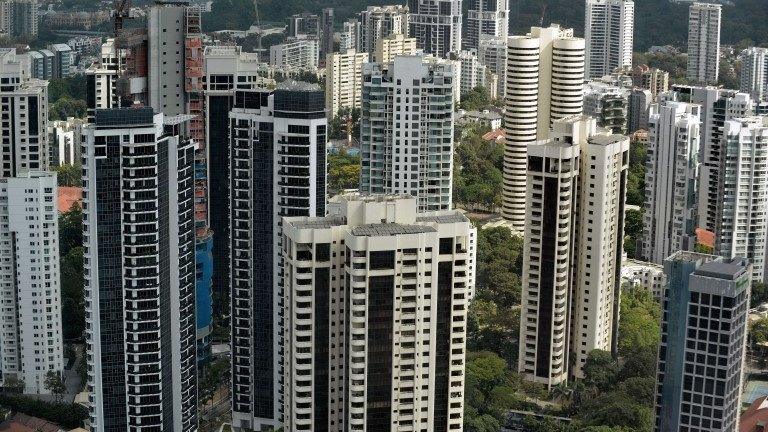Singapore government accuses YouTuber Preetipls of 'blatant racism' over rap
- Published
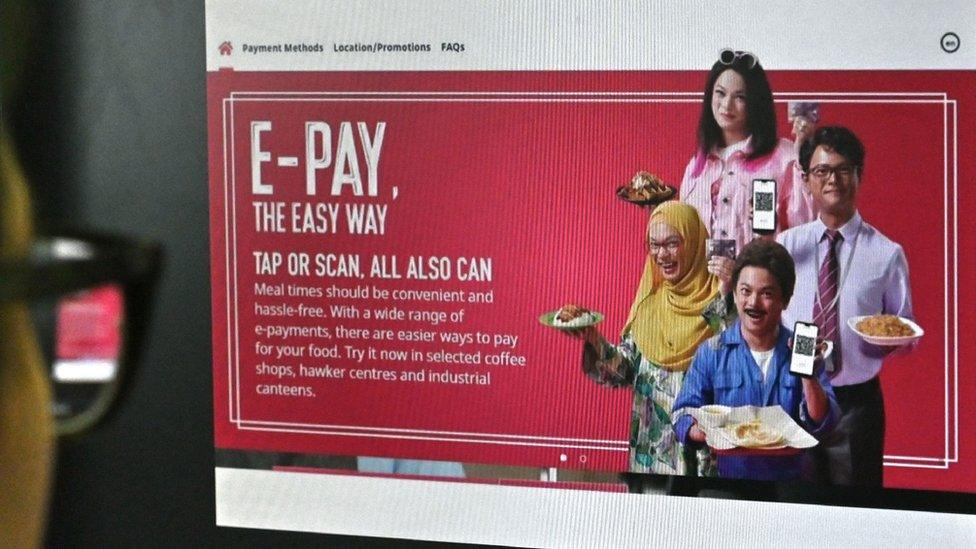
The ad, which has since been taken down, featured a Chinese actor in "brownface"
Singapore's government has accused two YouTubers of making a "blatantly racist rap video" in an ongoing row over an ad which the rappers describe as racist.
It said they showed contempt for Singaporeans concerned by their video.
The payment app ad shows an ethnically Chinese actor in "brownface".
The satirical video, created by Preeti Nair - also known as Preetipls - and her rapper brother Subhas, is full of expletives and takes on the subject of race, highly sensitive in Singapore.
After a backlash, the creators of the advert issued an apology - which the Nair duo later parodied in their own mock-apology statement., external
Responding to this, Singapore's Ministry for Home Affairs criticised Preeti and Subhas Nair for what they called their "insincere apology".
"It is a spoof of an earlier apology issued by Havas Worldwide [ad agency] for the e-pay advertisement," it told local media.
"This spoofing is a pretence of an apology, and in fact shows contempt for the many Singaporeans who have expressed concern at their blatantly racist rap video."
In response, the YouTubers released a joint statement in which Preeti and Subhas Nair apologised "unconditionally" for the offence caused by the video., external
The pair said on Saturday they had hoped the video would "spark a conversation" about the portrayal of minorities in national media.
"It has been a difficult time, but a silver lining is that brownface will probably never happen again in Singapore," they added.
What's the background?
The ad that set this row off was for a Singaporean e-payments company called Nets, featuring the actor Dennis Chew.
Mr Chew, who is ethnically Chinese, was dressed up as four different characters - including an Indian man and a Malay woman. For this, his face was darkened with make up and he posed in a hijab.
The ad sparked a debate about racism in the wealthy city-state, where 76% of the population is ethnically Chinese, 15% is Malay and 8% is Indian.
It sparked such a strong backlash that Havas, the agency behind the ad, and Mr Chew's agency issued a joint apology, and the ads - which were printed - were taken down.
"The message behind this advertising campaign is that e-payment is for everyone," the agencies said in a statement. "For that reason, Dennis Chew, well-known for his ability to portray multiple characters in a single production in a light-hearted way, was selected as the face of the campaign... We're sorry for any hurt that was unintentionally caused."
Where does rap come into this?
In response to the ad, Preeti and Subhas Nair released a satirical music video called K. Muthusamy - after the name given to the Indian character in the Nets advert.
In that, the siblings rapped that Chinese people are, to paraphrase, "always messing it up" - although they used stronger language.
"Y'all be doing the least but still doing the most, is it the app or the stereotypes you're trying to promote?" the pair added, with the offending advert behind them.
Later the rappers issued a statement which appeared strangely familiar: "The message behind this music video is that opportunities must be for everyone, external. For that reason, K Muthusamy, well-known for his ability to address privilege, power and censorship in a single production in a light-hearted way, was selected as the face of this music video... We're sorry for any hurt that was unintentionally caused.
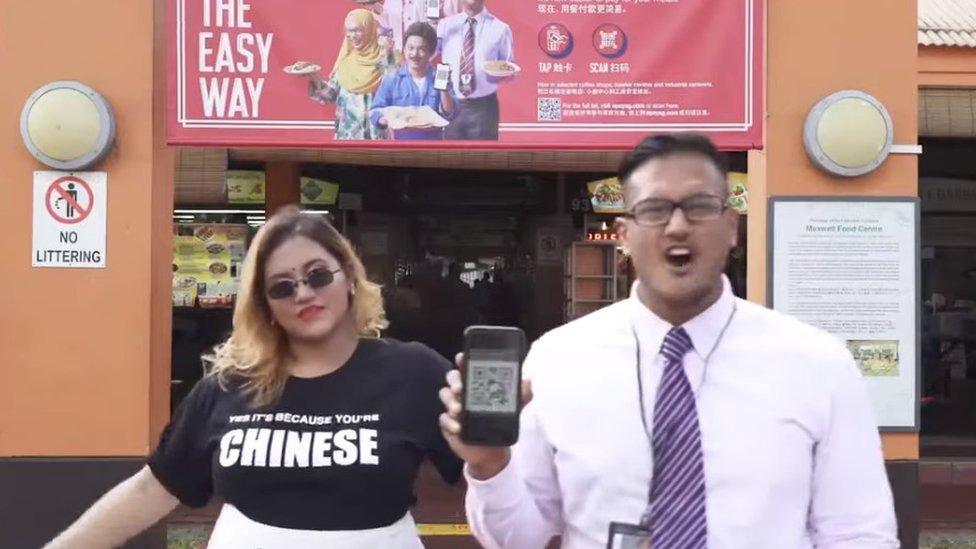
The government has called the satirical rap video, created by Preeti and Subhas Nair, 'blatantly racist'
YouTube, Facebook and Twitter had also blocked the video from being viewed in Singapore after the government requested its removal.
Law and home minister K Shanmugam later confirmed that the government had asked the sites to take the rap video down, and that it was being investigated by the police.
"Let's say a Chinese now does a video attacking Indians, Malays using four-letter words, vulgar gestures, same kind of videos," he told Channel News Asia. , external"And let's say there are hundreds of thousands of such videos. How do you think the Indians and the Malays will feel? Would people feel safe? Would the minorities feel safe?"
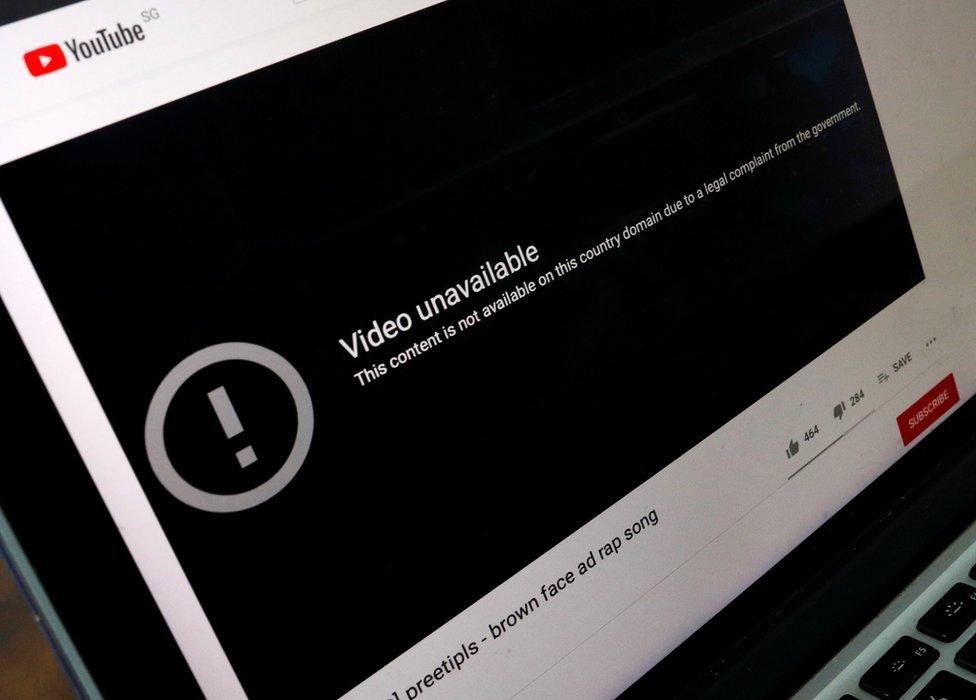
The page now displays a message saying the video has been removed
In a statement sent to the BBC, a Facebook spokesperson said: "Our Community Standards outline what is and isn't allowed on Facebook and we remove content that violates these standards when we become aware of it.
"There are also times when we may have to restrict access to content because it violates a law in a particular country, even though it doesn't violate our community standards."

'Yearning for a franker conversation about race'
Analysis by Tessa Wong, BBC News, Singapore
Race has always been an ultra-sensitive subject in multi-cultural Singapore, ruled for decades by a government that fears instability and a repeat of past racial violence
Over the years it has imposed strict laws which it says ensure responsible discussion of subjects like race - many in conservative Singapore would agree with that approach - but which critics say restrict freedom of speech and expression.
The country is no stranger to satire, but the liberal use of swear words in K. Muthusamy, and its sharp, direct and caustic tone in discussing racial discrimination, is unusual and would be considered shocking to mainstream Singapore.
But a small and growing number of Singaporeans - many of them young, voracious consumers of online content that has a similar tone to the video - see nothing wrong with it.
This is a group that yearns for a franker and bolder conversation about race, and is frustrated with the careful tones of the discourse in the tightly-controlled local media. They are not content with how mainstream society and the government get to impose a certain definition of racism, and rules on how Singapore should discuss race.
The decision to censor the video and investigate Preetipls and Subhas, coupled with a perception that those who came up with the "brownface" advertisement got off lightly, may only stoke that frustration.
- Published23 January 2019
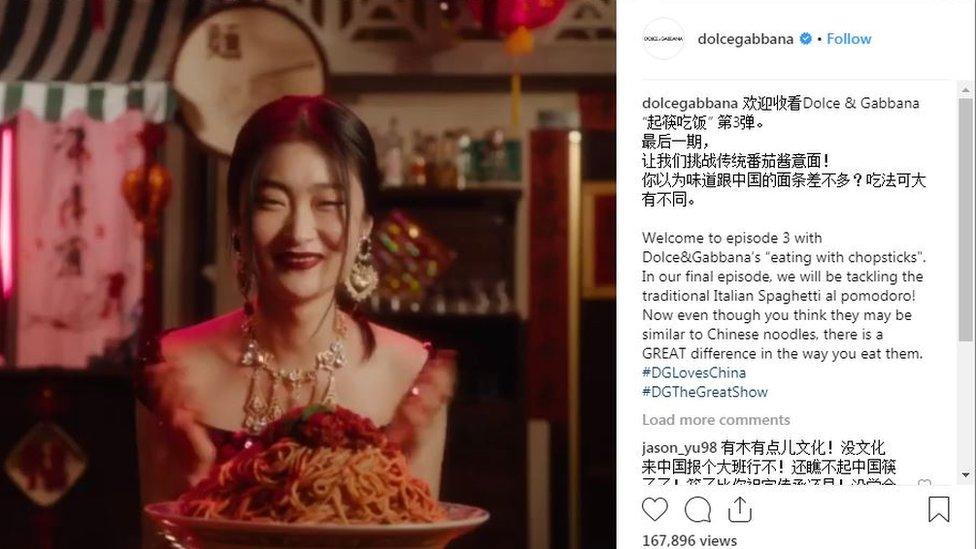
- Published27 May 2016

- Published1 May 2014
